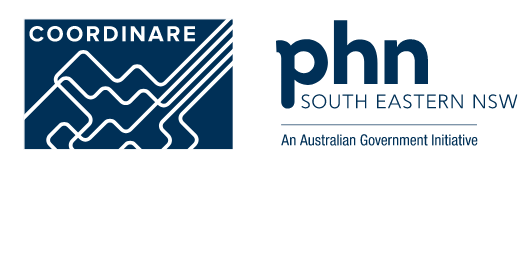
Safe drinking campaign kicks off in South Eastern NSW
15 October 2021
COORDINARE and the Alcohol and Drug Foundation have joined forces for the first time to share national drinking guidelines with local communities in South Eastern NSW.
COORDINARE’s latest Population Health Profile report found that the South Eastern NSW region had the sixth-highest rate of alcohol-related hospitalisations among all NSW Primary Health Network (PHN) regions.
The new ‘Take the guesswork out of drinking’ campaign focuses on making sure local adults know the National Health and Medical Research Council (NHMRC) guidelines and what a standard drink looks like to reduce risky drinking.
Dianne Kitcher, CEO of COORDINARE said it was important to work with a campaign partner that would help spark conversation around healthier drinking habits in the region.
“We’ve seen an increase in alcohol consumption as a way of coping in the wake of recent disasters such as bushfires and COVID-19, resulting in around one in five people in South Eastern NSW engaging in high-risk alcohol consumption,” said Ms Kitcher.
“To tackle this increase, following a competitive tender process, we commissioned the Alcohol and Drug Foundation (ADF), one of Australia’s leading bodies committed to preventing and minimising alcohol and other drug harms in communities, to support our commitment to long-term initiatives that build resilience in the community and address risk factors for chronic disease like risky alcohol consumption,” she said.
The COORDINARE partnership builds on the work the Alcohol and Drug Foundation has been doing nationally to raise much-needed awareness of the recently updated NHMRC drinking guidelines.
Research from the Foundation showed ninety per cent of people polled weren’t sure of the recommended amount of alcohol they should be drinking each day or week. And more than half didn’t know how much alcohol is in a standard drink.
Alcohol and Drug Foundation Chief Executive Officer Dr Erin Lalor believes the campaign will be a great opportunity to reduce these stats in one of the largest rural and regional populations in NSW.
“With the aim of taking the guesswork out of drinking and clearing up confusion around standard drinks, the campaign will be featured across social media, selected TV channels and outdoor advertising near local supermarkets in the region,” said Dr Lalor.
“There’s even an online quiz to test people’s drinking knowledge, encouraging people to get thinking and talking about the amount of alcohol they’re drinking.
“Aussies unknowingly drinking more than is recommended can cause significant harm, contributing to nearly 4,200 alcohol-related deaths each year – all of which are preventable,” said Dr Lalor.
“The evidence is clear. The less you drink, the lower your risk of harm that can lead to hospitalisations or death, such as injuries, illnesses, dependence and chronic diseases like cancer and heart disease.
“We want to make sure as many Aussies as possible are aware of the NHMRC guidelines to minimise these harms and it’s encouraging to work with a partner like COORDINARE who is just as committed as we are to improving the health and wellbeing of their community,” added Dr Lalor.
Built on the latest evidence, the guidelines recommend:
- to reduce your risk of cancer including breast, stomach and bowel, keep it to 10 or less standard drinks a week with no more than 4 standard drinks in one day to reduce your risk of injury and accidents.
- anyone under the age of 18 should not drink any alcohol to help prevent injury and other harms to their health
- women who are planning a pregnancy, are pregnant or breastfeeding should not drink alcohol, as it’s safest for the health of their baby.
For more information about the alcohol guidelines and to see what a standard drink looks like, people can visit the Alcohol and Drug Foundation website.
For free and confidential alcohol and drug information or support, we encourage people to visit the Alcohol and Drug Foundation website or call the Alcohol and Drug Foundation’s DrugInfo line on 1300 85 85 84.
The non-judgmental service provides facts about alcohol and other drugs, advice on how to support loved ones, and connects people with relevant health and support services in their state and territory.

